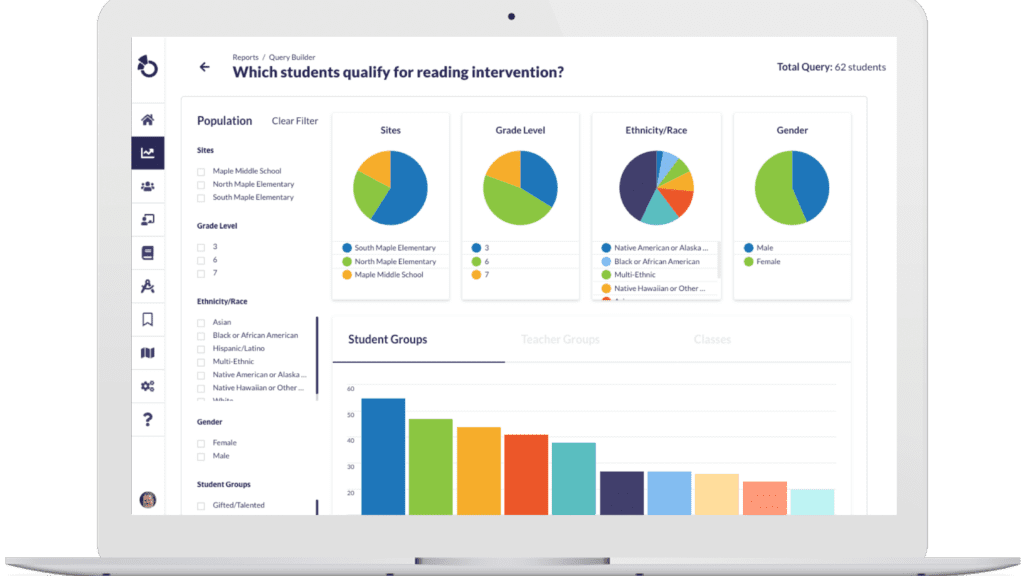Have report cards driven a wedge between parents and standards-based grading?
By: Keith Westman
As the school year begins, educators are reminded that parents have their own school experiences from which they draw upon as they send their children to school. They remember doing homework, sitting in the lunchroom, and how much fun they had on field trips.
Like every industry, education has evolved over the years. But unlike other industries, the prior knowledge and experiences that parents have about schooling can present a challenge when it comes to schools being able to implement new and innovative ideas. People tend to fear what they don’t know or understand, esp when it concerns their children.
Let’s consider the report card, a part of the schooling process that parents certainly remember from their youth. To parents recalling their own K-12 experience, the report card was a document that schools would send home (at seemingly random times) reporting how well (or not well) they were doing in school at that point in time.
In the traditional grading environments that existed when today’s parents were school-age children, students were measured on points and percentages. Report cards fit that instructional method -- they reported how students were doing at a given point in time using a letter or number grade.
The standards-based grading initiative has presented a challenge to school systems because this new way of assessing and monitoring student progress is not compatible with the traditional report card. In standards-based grading, students are evaluated on many assignments, assessments, and learning experiences around a learning standard that is given over a period of time. Instead of a letter grade or percentage judging student performance, for example, educators evaluate student skills against a “mastering a skill” continuum.
So if the traditional report card is insufficient in standards-based learning settings, how can we report student progress in a way that allows parents to embrace the initiative instead of pushing back on it because they don’t understand it?
At Otus, we believe a key to the successful implementation of standards-based grading is frequent parent communication. Otus is very proud to announce three features that we believe both allow school systems to implement standards-based grading with fidelity and provide parents with both traditional and new ways to understand student progress in a standards-based setting.
A redesigned paper report card
We have designed a paper report card to meet the needs of educators while also being understandable for parents who are new to standards-based grading. Traditional student information systems (SISs) typically generate report cards using a numerical value. This requires educators to convert standards performance to a number (i.e. Mastery is a 4/4, Not at Mastery is 1/4). This type of conversion contradicts standards-based learning because time is not a consideration in the grade -- the grade is simply driven by a mathematical equation. It says, “you must know this skill by now” instead of, “this is your current level of mastery”.
Our paper report card uses the school’s specific mastery terms and allows for multiple grading scales for different grade levels. Administrators can also choose how to display the mastery level to parents (Mean, Mode, Highest, Most Recent, Decaying Average) and the specific standards that they want to be shown on the paper report card.
Finally, if a school is in a blended setting (wishing to report both points and mastery levels) our report card can communicate both types to families on one report. View a 60-second video on our report card builder.
An interactive gradebook
Parents are able to access student scores on specific formative and summative assessments by accessing our interactive standards-based gradebook. This allows parents to view student progress over time, drill into any formative assessment, and keep the standards-based terminology part of the regular communication between home and school. View a brief video of how a parent can access the interactive report card here.
An app to keep parents “in-the-know” each day
Our first ever mobile phone app is designed to allow parents and students real-time access to mastery levels and the results of formative and summative assessments/assignments on-the-go. Now, schools can be sure the progress on standards is being communicated much more frequently than through a traditional report card or progress report. View a brief video about our family and student mobile phone app.
We believe the lack of frequent and consistent communication about student performance on learning standards is the primary reason parents question the standards-based grading initiative. This lack of frequent communication leads to anxious parents who contact schools asking for them to go back to “a normal report card” because they don’t understand standards-based grading.
When educators are given the right set of tools to streamline reporting, and when those tools are paired with a parent reporting mechanism that is easy to understand and happens frequently, we believe that the likelihood of successful adoption of standards-based grading is greatly improved because parents are better able to support the journey.
Request a demo!
See exactly how Otus can help your school accelerate student growth and improve student outcomes – all while saving educators time.





